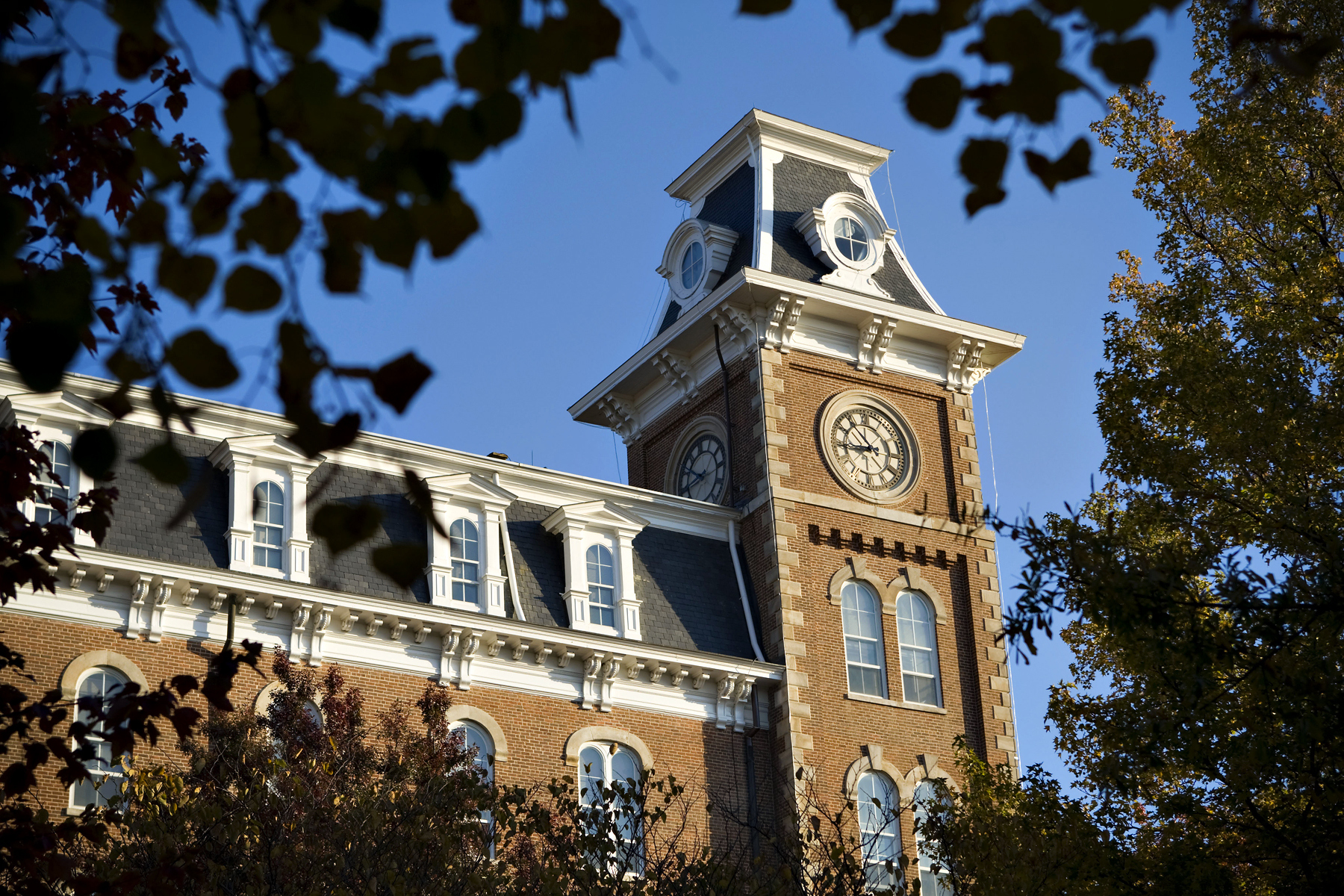The prospective student college tour as propaganda platform.
Arkansas: Red for the Moment, Blue for the Future

DEI needs to be rooted out.
The push for Diversity, Equity, and Inclusion (DEI) is heavily supported by the Left and is widely understood as a means to platform leftist ideological indoctrination. We are all aware of this happening in the typical locales of the progressive movement—L.A., New York, Seattle, etc.—but it is also occurring in the heart of traditional America. Take a close look at this diversity statement from a state university:
We are dedicated to attracting and supporting a diverse student, faculty and staff population and enhanced multicultural learning opportunities. We value the opportunity to work, learn, and develop in a community that embraces the diversity of individuals and ideas, including race, ethnicity, religion, spiritual beliefs, national origin, age, gender, marital status, socioeconomic background, sexual orientation, physical ability, political affiliation, and intellectual perspective.
This diversity statement is directly pulled from the University of Central Arkansas. Arkansas voted 62 percent Republican in 2020, is led by a Republican governor, possesses overwhelming supermajorities in both chambers of their legislature, and yet provides extensive development and implementation of Diversity, Equity, and Inclusion programs, offices, and curriculum throughout their institutions of higher education. If Arkansas stays on its current course, not only will conservatives be funding ideological indoctrination, but they will also nurture institutions to turn Arkansas back into a one-party, blue state.
DEI Discovery
The legislature has begun to take a closer look at the deeply-rooted issues present in the university setting. Arkansas state officials led by Senator Dan Sullivan, the co-chair for the Subcommittee for Higher Education, sent an inquiry to 12 universities to gage the level of involvement with DEI. A sample of the questions included read, “Does the institution have a DEI dean?”, “Is DEI a component of your strategic plan?”, along with asking questions about DEI materials in trainings or classes that students and faculty are subject to.
The responses varied, though most schools reported their commitment to implementing DEI on campus through their strategic plans. The University of Central Arkansas, for example, notes they “actively pursue and seek to retain a diversified student body, faculty, and staff” through “increased recruitment and retention” of a diversified population. UCA also staffs a Diversity Advisory Committee committed to ensuring that diversity is carried out on campus. Their responsibilities include addressing university policies and procedures and suggesting recommendations on how to retain and grow a campus climate of inclusion and diversity.
Arkansas Technical University noted in the survey that it has no personnel who operate with DEI functions. But there are still efforts clearly noted on the university’s website which reveal the pursuit of diversity initiatives. Similar to UCA, ATU has an entire section of their strategic plan that is dedicated to pursuing diversity in the student body, faculty, and staff. Part of this plan includes “expanding recruitment for minority candidates for faculty and staff positions.” To support this objective, the university staffs an affirmative action office to seek out more diverse candidates for the university.
Arkansas State University has a specific plan for minority recruitment and retention. ASU defines diversity as “the creation of an environment that accepts the unique characteristics of each person as an equal and valued member of the community.” But DEI does not sufficiently cover the objectives the schools plan to meet, which is demonstrated through their lengthened initialism to DEIB: Diversity, Equity, Inclusion, and Belonging. The main thrust put forth is an emphasis on DEIB being “good” for education and that it is “simply the right thing to do.” On top of these goals, the university claims that the vision is for Arkansas State to be “known for its commitment to DEIB.”
Consequences of Adopting DEI
The claims of these initiatives are spun positively in flowery terms, but the reality remains that state money is being utilized by the Left on DEI efforts that in turn have negative effects on university campuses. Progressive institutions show this explicitly through their implementation of DEI. In her book The Diversity Delusion Heather Mac Donald described the harms that are caused by prioritizing diversity in the academic sphere. Instead of prioritizing academic rigor and the open discussion of ideas, the diversity movement lowers academic standards and creates hostile environments.
On the academic front, minority initiatives statistically cater to a lower academic standard. Studies from Duke record the demographics accepted into the school and the average SAT scores for different ethnic groups. Though Asian and white students admitted into Duke are recorded at having average SAT scores of upwards of 1400, black students are recorded a standard deviation below, scoring an average of 1275. An additional statistic from Duke shows that 76 percent of black male students who begin their college career studying a STEM subject change their major while only eight percent of white males were recorded switching out of a STEM track. Bright students who are nonetheless out of their league at a stellar university may feel outclassed in rigorous subjects; had they attended a slightly less competitive school they may have been perfectly competent STEM majors.
DEI initiatives are in opposition to the purpose of higher education, but these efforts are also unconstitutional in nature. On June 29th, 2023, Harvard was proved to be using race as a significant deciding factor in the population of students who were admitted to the school. The case was presented by the Students for Fair Admission, who argued that Harvard was discriminating against Asian applicants. The decision ended with a 6-2 vote in favor of the students. The Supreme Court ruled that race-based admissions for college students directly violated the Equal Protection Clause of the 14th Amendment, which prohibits laws that “allow privileges and immunities” to certain races and not others. With this understanding applied to a greater scale, DEI should be unconstitutional.
It may be easy to think that because these examples are taken from extremely progressive states there is little possibility that state schools in Arkansas will fall to the same fate. How could a state with such strong conservative leadership allow its universities to continue with such liberal practices? It could be that its conservative leadership grew complacent, and under a false sense of security, the diversity agenda was instituted right under the nose of the state’s political class.
One can only wonder what will happen if Arkansas continues to permit and fund these initiatives at the university level. Students are pursuing their education at these institutions and are being indoctrinated with a biased understanding of the world which encourages them to fight against freedom of thought. If we cannot trust red states like Arkansas to educate students plainly and without loathsome ideals, then the country is lost.
The American Mind presents a range of perspectives. Views are writers’ own and do not necessarily represent those of The Claremont Institute.
The American Mind is a publication of the Claremont Institute, a non-profit 501(c)(3) organization, dedicated to restoring the principles of the American Founding to their rightful, preeminent authority in our national life. Interested in supporting our work? Gifts to the Claremont Institute are tax-deductible.
A look at the Great Migration of the twenty-first century.
Saddling conservatives with the color of communist tyranny is repugnant.
Republican-led states are finally taking aim at destructive ESG mandates.
Fighting the impulse for national divorce with spousal abuse
The collapse of the last frontier—and how to save it.






